Engagement Report 2H20
In 2H20 we undertook 62 discussions with investees, focusing on the gaps in ESG reporting and concerns identified by our ESG scoring process. Two of our in-depth engagements were:
Gazprom – emission reduction targets, Artic drilling and environmental accountability at the board level have been discussed, the lack of progress partly attributable to lax ESG regulations and a lack of regulatory push. Board independence remains a challenge due to state control.
China Railway Group – corruption and human rights violation reports on a construction project in Uganda have been addressed by the company, which has shown improvement in implementing policies, training and monitoring of both employees and contractors. Compensation and remedial measures have been verified by the government.
The investment team has completed the scoring of 85% of portfolio companies in our large cap strategy. Disclosure of ESG information varies significantly between countries, and while incremental improvements have been seen year-on-year, there are few significant changes. The key to the speed of improvement remains regulatory scrutiny and investor pressure. Amongst portfolio companies, Taiwanese corporates are highly ranked, as they have been publishing CSR reports for a number of years and understand the need for ESG as a part of their investor relations approach. In South Korea it is predominantly large conglomerates that are producing CSR reports, with social equality and governance at the forefront, and climate awareness somewhat lagging. Hong Kong-listed corporates are catching up, but the momentum behind improving ESG disclosure may falter if revised rules are not implemented soon. Despite much publicity, disclosure from China A-shares remains scant, however they seem to follow developments in Hong Kong closely, so may well be heading in the right direction but trailing somewhat.
On climate reporting we are currently using Refinitiv as the data provider for calculating the portfolio carbon footprint, which covers 86% of the portfolio. As we prepare for more detailed climate reporting, we are looking to add resources.
We have also begun screening companies against global norms and are working on formalising our exclusion policy. This is part of the review of our policies related to responsible investment, as we have recently become a signatory to UN PRI, and will be preparing for the annual assessment in due course.
